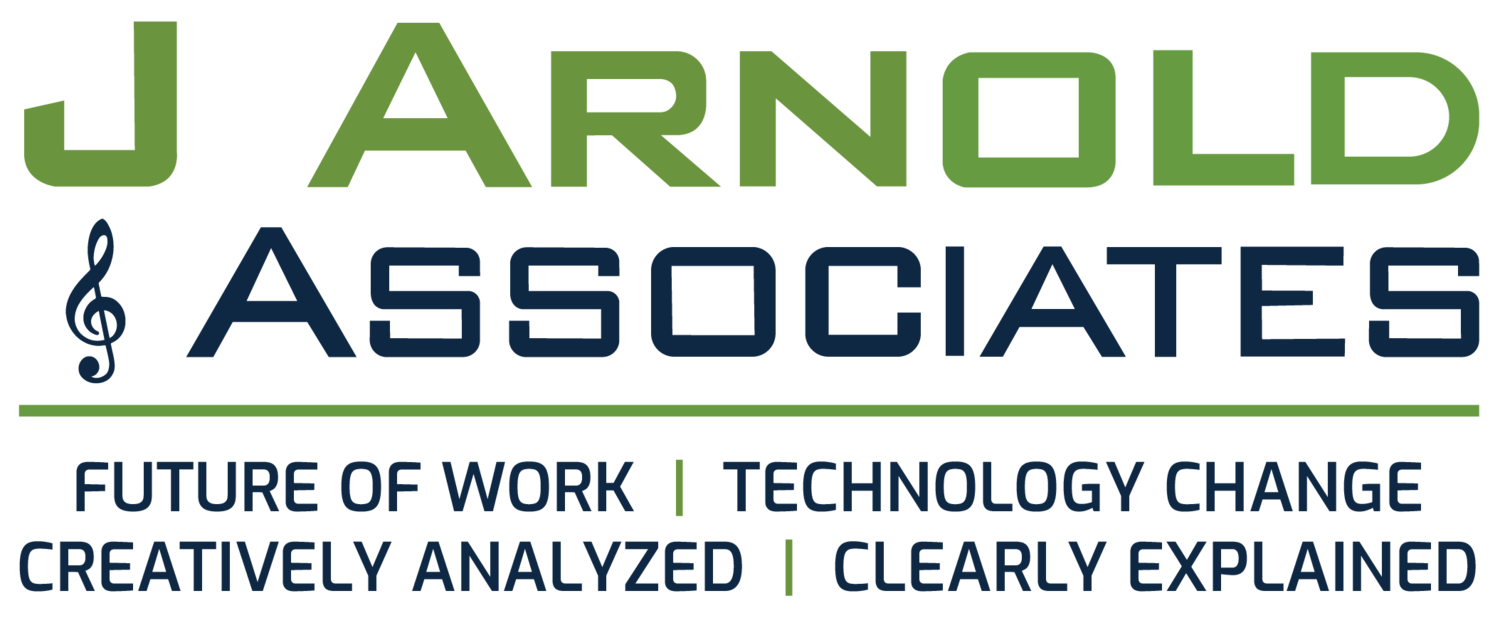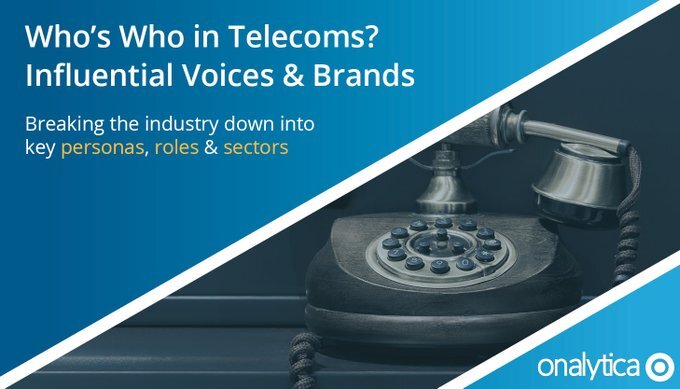magicJack - Another VoIP Disruptor?
/Anybody out there heard of magicJack? Love the name, and it sounds magical - maybe a bit too magical...
I hadn't until a few days ago. It's yet another device/gadget you can connect to your PC, and voila, you've got VoIP. Very quickly and quietly - well, maybe not so quietly - they've sold 400,000 of these in the U.S. Or least that's what they're telling us.Check out this story that ran on Friday in the venerable U.S News and World Report, which was kind enough to include my comments in. Not having heard of magicJack before, Ooma came to my mind right away, which raises a whole other set of ideas and concerns.
But then as you look a bit further into this, magicJack strikes me as a bit of a Frankenstein creation that has a little bit of....- Vonage
- Skype
- Ooma
- Google
Why Vonage? Well, they're going after the residential landline subscriber, selling them on the benefits of lower LD costs. However, it's not a replacement service with a monthly fee - just a cheaper way to make domestic calls. Oh, and like Vonage, it's a gadget that connects your phone to your PC. The website lists all kinds of features - similar to Vonage - that can approximate this as a landline replacement service, but that sure looks like a big stretch to me.
Why Skype? magicJack is all about PC-based telephony, which is how Skype started. Skype is moving well beyond this, of course, but the magicJack folks still seem to see a market here. Like Skype, calls are free between magicJack users, and otherwise, calls within the U.S. and Canada are free - and they will soon be offering international calling. A lengthy menu of overseas locations is posted on their site, along with "projected rates". This is a pretty good sign that unlike Skype, their offering is for heartland USA, where international calling is not an everyday occurrence. Actually, I should clarify that Canadian calling is not not available yet either. This is explained more clearly on the website of their Canadian distributor.Like Skype, they have options for "In" and "Out" numbers, which allow calls to bypass your local carrier to go over their network. Much like last year's SkypeOut program for North America, domestic calls are unlimited. Skype has since moved to a monthly fee, which guarantees them recurring revenues, and more options to upsell users to new services. This also makes the service more like a subscription, which to me, is what builds value over time. Right now, magicJack is working on the annual fee model, which is a subscription of sorts. Skype has moved on from this approach, but SunRocket didn't and well, we know how that story ended.
Finally, like Skype, you need to have your PC running to use it. That's no longer true with Skype, but that's how it was initially. I guess the expectation is that magicJack's customers are always-on kind of people, and in that case, this shouldn't be a problem. I'm just not so sure that's really what's happening out there.Why Ooma? It's a gadget, but not nearly as slick. But it's also passive, which to me, is a problem. In other words - out of sight, out of mind. Since there is no monthly fee or statement, it just sits there, but doesn't really engage you. It's actually more of problem here since it takes up a USB port on your PC, so you need to be conscious of it, and sometimes you'll need that port for other things. Another important parallel is that magicJack has its own "network", which, like Ooma is a key selling point for a higher quality calling experience. There's not much talk about what this network is, but at least they recognize the importance of this in providing a decent service.
A couple of other things that are similar to Ooma. For now, you can only get magicJack by ordering from their website. That's a pretty limited channel, but it sure keeps your costs down. I'd be impressed if they really have sold 400,000 units this way so far - I'm more than a bit skeptical. Mind you, the website is touting this as a free 30 day trial - which expires today - so maybe the numbers are there, but I'm not so sure about the revenues.Another interesting parallel is the physical nature of the product. magicJack is a USB card with a conventional phone jack at other end. It's like an ATA, but here, you literally tether your home phone to the PC. Is that Voice 1.0 or what? Sure, it will work with your cordless phone, but like Ooma, you need a separate gadget - for lack of a better word - for each phone you want to hook up. Is this really a market you can build a business around? And, unlike Ooma, there's really no integration for multiple line use. It's very much a serial type of product - one magicJack, one phone, one PC. At least with Ooma you get the instant second line and the ability to conference the lines together - I always loved that feature.
One more thing. Like Ooma, this venture has come out of the blue from people not well known in VoIP, although they definitely have a telco pedigree. This venture is led by Dan Borislow, the Founder of YMAX Communications - "a modern phone company with the largest CLEC network in the U.S." Am not sure what modern means, and I can't verify their claim for size, but I sure like the way they do business. What's not to like about being based in West Palm Beach, with the management team photos showing them very relaxed on the beach. You'd think a company of this stature would be easy to reach by phone. Well, the only way to contact them is by "Airmail" to a P.O. box in Florida. Is it just me?Anyhow, magicJack actually comes across like a K-Tel or a Ronco product, being pitched by Mr. Borislow in a very folksy way. The demo video on the website shows his "title" as Inventor - not CEO or Founder. And he's demoing the product with his daughter. I wouldn't exactly call this Web 2.0 marketing, but it probably resonates with the middle America audience he's catering to.
Finally - like - Ooma, magicJack has a lot of hype around it, making this sound like a slam dunk to be next big thing. There are lots of bona fide media kudos on the homepage, and even an FCC logo on the bottom, which I've never seen before. I guess that gives it the Good Housekeeping seal of approval to show how legit this telco-killer really is. Are you convinced yet?Why Google? If you're still with me, the slog will be worth it. I'm saving the best for last here. If you're the least bit curious, you've got to be wondering how one product could possibly have elements of all these services. I think the above three are easy to gauge, and it's clear - at least to me - where magicJack is borrowing wisely - and not so wisely.
Ready for this? The service is very well priced, which explains its apparent early popularity. It lists for $40 a year, unlimited domestic calling - that's a good deal. Skype's plan is about $3 a month, so the annual cost is comparable. To build trial, magicJack has this free 30 day offer going on. Well, considering how long it took Vonage to get 400,000 subscribers, and how much money they spent, this could be a good strategy.It also looks like a Trojan Horse strategy to me. The name of the game for magicJack is numbers - get lots and lots of subscribers. Yes, this drives subscription revenues, and maybe even a bit of international calling, but there's a Web 2.0 element to this, and you're not going to like it.
Whether you like it or not - want it or not - magicJack is going to serve up advertisements. It's not clear if these are just audio ads coming over the phone line or also on your PC screen, but they're not just mass-market messages. Nope - they're context-based, derived from your personal information. It's not clear what they're basing this on - it may just be your phone number, but I fear it could be other personal information which would be used to target advertising much the way Google serves up ads when using their search engine.So, with a large enough subscriber base, magicJack would theoretically be able to derive premium advertising revenues by allowing advertisers to more selectively target their message to a decent sized audience.
WHOA! I guess with search we accept this since it's a free service, plus we're not leaving personal information on file with Google. But magicJack is making a very clear connection between the two, and if you care to read the fine print, it gets even scarier. Just scroll down to Item 11 of their Terms of Service Agreement - here's a sample of what I'm talking about..."You also understand and agree that use of the magicJack device and Software will include advertisements. Advertisements will be served through the magicPage� Software. magicPage� Software attempts to serve local advertisements and classifieds using a completely automated process that enables us to effectively target dynamically changing content."
And...
"You also understand and agree that use of the magicJack device and Software may include certain communications, such as service announcements, administrative messages and newsletters, and you will not be able to opt out of receiving them."
And, by the way, this is not the only caveat for magicJack. If you care to review all 24 Terms of Service conditions, you'll find a whole lot more to be asking questions about. For those of you who have tried Ooma, you may recall similar concerns. At the very end of the sign-up process, Ooma states all these conditions about how they basically take over your phone service and can terminate existing calling plans to keep calls going over their network.
I'm going to leave it at that for now. I could go on and on, and have not even touched on many other features and aspects of magicJack that you just have to wonder about. This post is long enough as it is.In short, it's a neat gadget, but it's chasing a declining market on several levels. I'm all for cutting down telecom costs, and perhaps they'll find a viable market for this. Ease of use is a huge selling point, and that seems to be one of their strong points, and maybe that will be a real differentiator.
Even if it was, though, the advertising element really kills it for me, and just seems to be on the wrong side of the good vs. evil continuum. Strikes me more as a business idea to drive traffic over YMAX's network, and there's nothing wrong with that. It's certainly a major reason why this is different from the other offerings I've been talking about here.However, there are just so many questions and missing pieces here. And I haven't even touched on issues such as customer service and call quality, both of which have been problematic. To be fair, though, I haven't tried magicJack, so I won't say any more. Last year I wrote a review on Ooma following my trial with it, and to go much further with magicJack, I'd have to do the same. At gut level, though, I still feel my initial reaction is valid.
You may wonder why I'm giving so much attention to this. Well, I'm not really sure myself, but part of it is an endless fascination for the entrepreneurial spirit and/or hucksterism that comes with mass marketing. You have to wonder in this day and age why anyone would follow down the path that Vonage, SunRocket, Ooma and many others have gone - with varying degrees of failure. I'm still wondering, and if you have the answer, I'd love to know.Technorati tags:
magicJack, Jon Arnold, VoIP, Vonage, U.S. News and World Report, Ooma, Skype, Google











